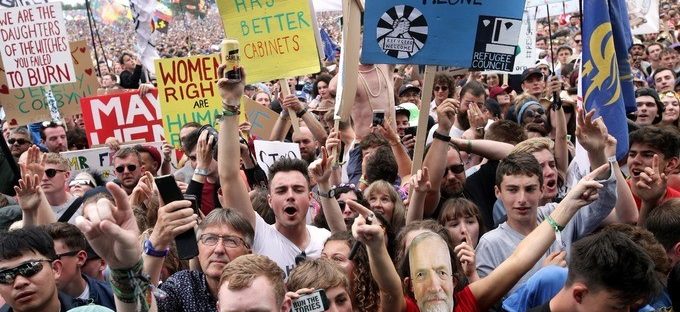Youth Quake sends tremors across the political landscape
- Times, YouGov and Labour claim highest number of 18-24-year-olds voted in 25 years
- Lecturers accused of indoctrinating young people with their beliefs
- Young people more likely to vote Labour or endorse socialism
More people aged 18-24 voted in 2016’s Brexit referendum and 2017’s general-election than have done in the last 25 years following an unexpected turnout by millennials.
85% of people aged 18-24 voted in Brexit according to a YouGov poll.
The turnout of younger voters in 2017’s general election contributed to Labour’s gaining of 21 seats.
Last year, Labour MP Kate Hoey claimed young people were turned against Brexit after being indoctrinated by their university lecturers.
Brexit became the most significant political decision in 40 years.
On both sides of the Atlantic, the politicisation of young people is changing the political landscape. In October 2017, Our Future Our Choice was formed specifically to energise young people into re-engaging with the Brexit debate. The young vote was instrumental in the election of Socialist Alexandra Occasion-Cortez in New York during the midterm election.
Studies suggest that once people vote for the first time, they will be more likely to vote consistently.
With the increasing politicisation of social media outlets, particularly Twitter and Facebook, more young people are gathering their information from social media rather than the mainstream.
Twitter and YouTube were previously criticised over their decisions to ban the accounts belonging to Info Wars host Alex Jones and Conservative activist Milo Yiannopoulos.
The Northern Quota discussed the reasons behind the surge in political activity amongst young people with MMU debating society treasurer Callum Breese.
Young into Politics from Northern Quota on Vimeo.
What did young people have to say:
Jason, 21-years-old, Animal Behaviour student, MMU: “What got me into voting really is the sheer fact that it’s my future it’s going to affect and if I don’t vote I won’t get a say in how the country is being run in my lifetime. I can’t comment on how bad or good it’s being ran if I didn’t vote”.
Jasmine, 21-year-old Business Management & Law student MMU: “I think it’s because they understand how it’s going to affect their future. I think they do not want the older generation shaping how their future is going to look like. For example, Brexit has created a lot of discussion among the younger generations as it will have some effect on our future”.
Helen, 19-year-old Nutritional Science student, MMU: “New articles on Facebook, Twitter and Snapchat are mixed in with gossip. Unless you are really interested you probably don’t watch the news. Or maybe seeing that politicians are making decisions that affect you, they are assuming what you probably want and getting it wrong. If you use Donald Trump as an example. He is quite vocal over Twitter”.
Scott, 22-year-old former student of the University of Chester: “Advocating for the abolition of tuition fees is a big draw for many on the left. A lot of them seem to get into it as a result of memes, 4chan, running through wheat fields and getting Trump elected just to see what happens. When it comes to getting people to engage in their local communities though, that’s a whole different matter”.
Alisha, 19-year-old Chemistry student, UOM: “I see a lot of my friends talking about their views a lot and news articles online especially on Twitter that makes me want to research into it more”.

Jessica said: “Maybe the attraction of power and money? Personally, that’s all I think politics is”.
For more information on how young people are engaging with Brexit, go to Our Future Our Choice.


